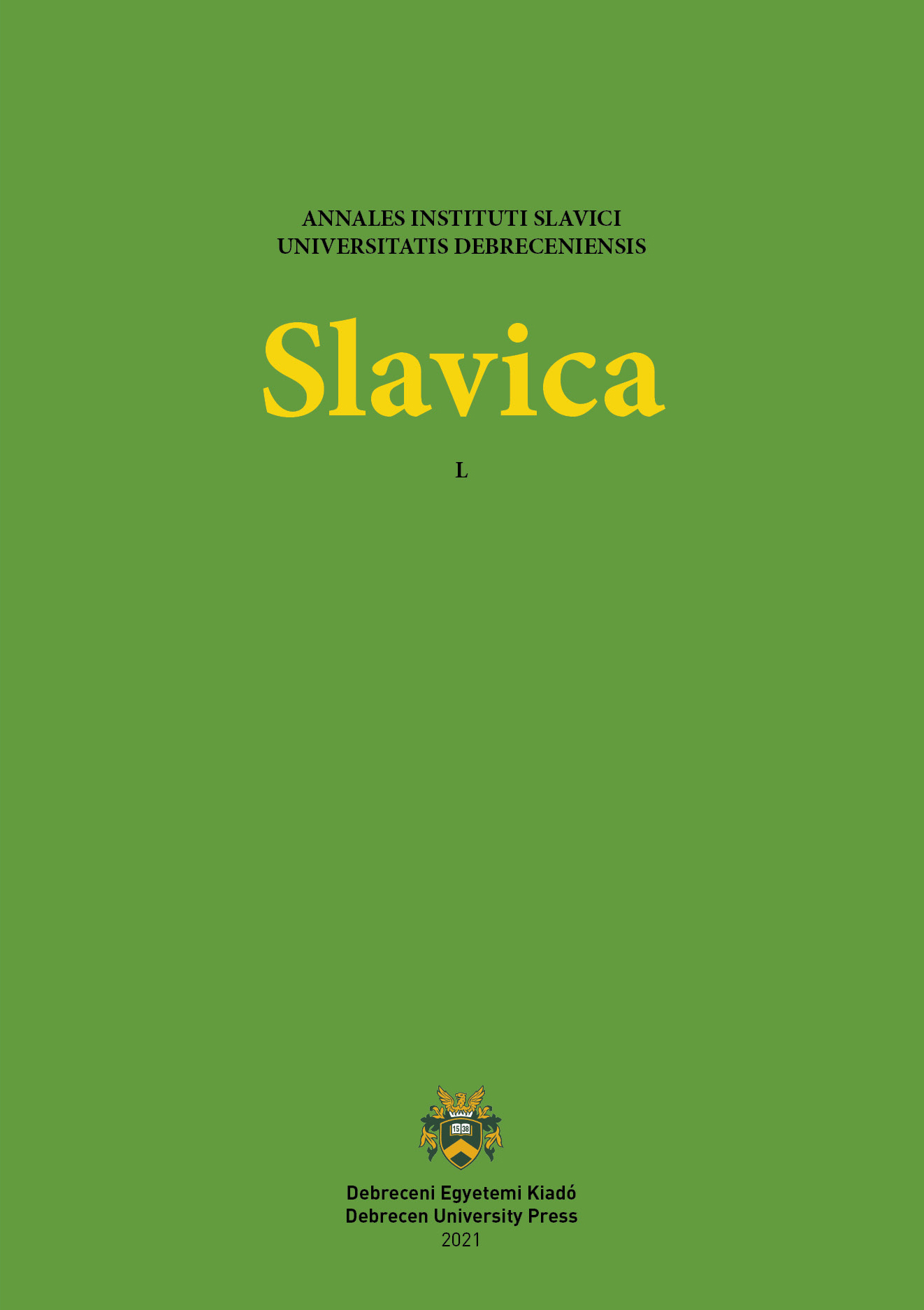The Function of the „Author’s Mask” in “The Soul of a Patriot or Various Epistles to Ferfichkin” by Yevgeni Popov
Author
View
Keywords
License
Copyright (c) 2021 Slavica

This work is licensed under a Creative Commons Attribution-NonCommercial 4.0 International License.
This is an open access article distributed under the terms of the Creative Commons Attribution License (CC BY-NC 4.0), which permits unrestricted use, distribution, and reproduction in any medium, provided the original author and source are credited.
How To Cite
Abstract
Playing with the author’s figure is not a new device in Postmodernism. One may refer to “Either/Or” by Søren Kierkegaard or “The Tales of the Late Ivan Petrovich Belkin” by Alexander Pushkin, or “The Fiery Angel” by Valery Bryusov. At the same time the foreword of “The soul of a patriot or Various epistles to Ferfichkin” proves that in Postmodernism this game is taken to the next level. The author who abandoned their fictional space and renounced theirauthorial role during Modernism returns and re-takes their formal place. However, he does not do it seriously but hiding behind the mask of the author – says Malmgren, introducing the term of the author’s maskinto literary discourse. In this analysis I state that Popov, using the author’s mask, turns the traditional interpretationof the author’s role inside out. I conclude that, on the one hand, the author’s mask ridicules the concept by which the author’s biography is the key to his work. On the other hand, it makes fun of Vinogradov’s view, according to which there is always an abstract author hiding in the text who carries its real meaning. I come to the conclusion, that Popov uses this narrative technique to emphasise that it is impossible to look at a literary work as an arsenal of ultimate truths and statements.

 https://doi.org/10.31034/050.2021.23
https://doi.org/10.31034/050.2021.23